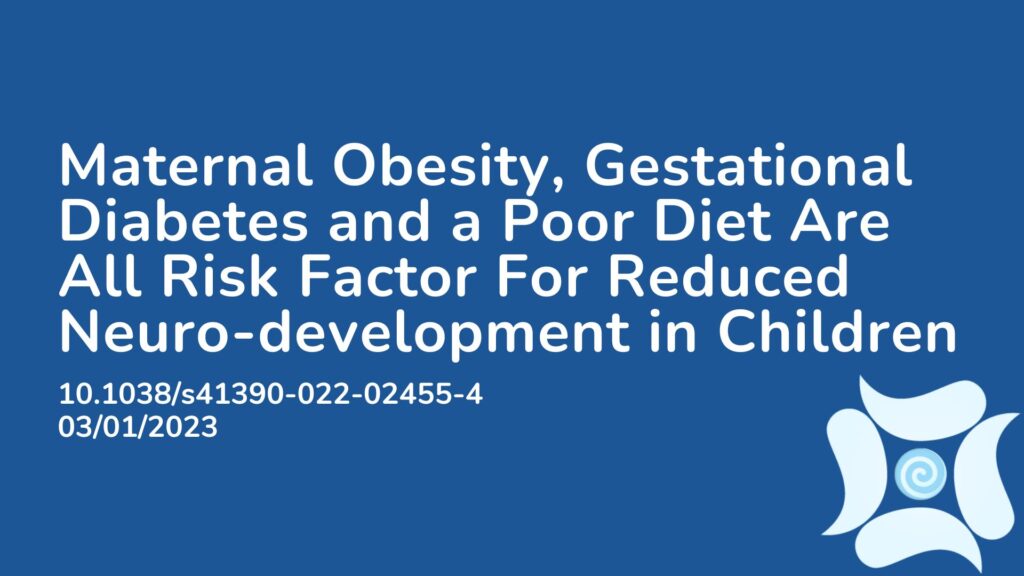Summary:
Obesity has increased globally in the last decade, as well as diets that include more processed and less fresh foods. Poor dietary patterns such as high amounts of fast food and nutrient depleted food has also increased globally for women of childbearing age, which can have deleterious impacts on the health of a fetus and the health of the child once born. The purpose of this study was to investigate whether obesity, gestational diabetes and a poor maternal diet could impact the neurological development of children at two years old. The study revealed that gestational diabetes and being overweight during pregnancy and during the postnatal period may have undesirable impacts on the neuro-development and cognition of a child once they are two years old. The study also advised that a good quality diet including fish consumption during pregnancy could result in cognitive benefit for a child, including their language skills, once they reach two years of age.
Abstract:
Background: Maternal metabolic disturbances and diet may influence long-term infantile neurodevelopment. We investigated whether maternal gestational diabetes mellitus (GDM), obesity, and diet could affect the neurodevelopment of 2-year-old children. Methods: Neurodevelopment of children (n = 243) born to mothers with overweight or obesity was assessed with the Bayley Scales of Infant and Toddler Development–Third Edition, and the Hammersmith Infant Neurological Examination. Maternal adiposity was determined by air displacement plethysmography, and GDM with an oral glucose tolerance test. Dietary assessment included diet quality and fish consumption questionnaires, and three-day food diaries, from which dietary inflammatory index (DII®) scores were computed. Results: GDM was associated with weaker expressive language skills (adj.β = −1.12, 95% CI = −2.10;−0.15), and higher maternal adiposity with weaker cognitive, language, and motor skills in children (adj.p < 0.05). Maternal good dietary quality (adj.β = 0.87, 95% CI = 0.004;1.73) and higher fish consumption (adj.p = 0.02) were related to better expressive language skills. DII scores were not associated with children’s neurodevelopment. Conclusions: Findings suggest that GDM and higher maternal adiposity may lead to weaker neurodevelopmental skills, although still within the mean normative range in this population of children. Good dietary quality and higher fish consumption during pregnancy could benefit a child’s language development.
Article Publication Date: 03/01/2023
DOI: 10.1038/s41390-022-02455-4



